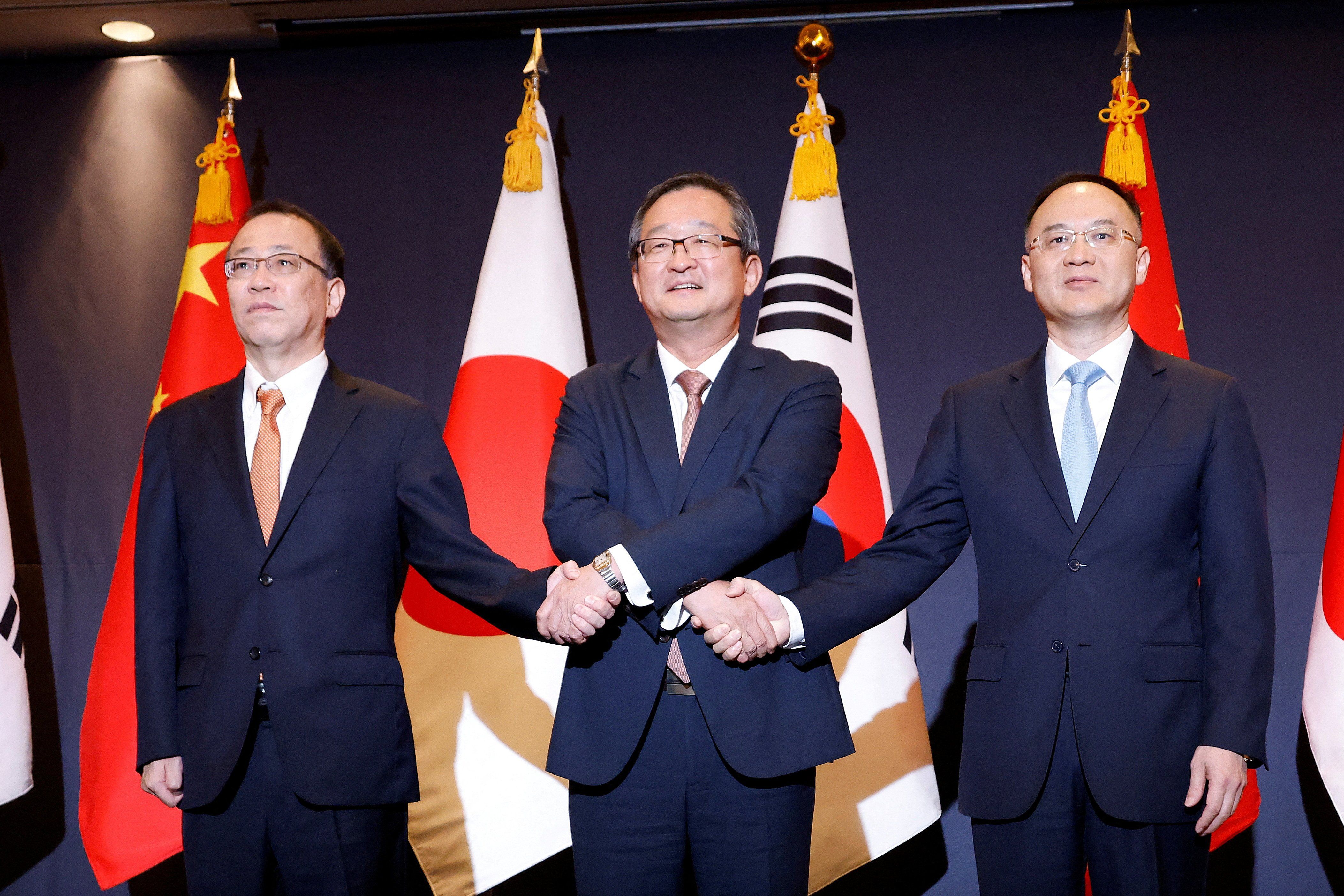Diplomats from China, South Korea, and Japan agreed to resume high-level trilateral meetings at the “earliest convenient time” in a signal that Beijing may be rethinking its aggressive foreign policy approach.
South Korea will host the meeting, likely in December, which will feature South Korean President Yoon Suk-yeol, Japanese Prime Minister Fumio Kishida, and China’s second-in-command, Premiere Li Qiang. It follows the same format used in eight similar trilaterals between 2009 and 2019, before COVID-19 and tensions between Seoul and Beijing interrupted the program. At the time, Beijing was pursuing a maximalist foreign policy framework that often emphasized aggressive tactics against states perceived to be acting against China’s interests.
Seoul got a nasty taste of the approach when it announced it would buy advanced missile defense systems from the United States in 2016. Beijing objected to the powerful radars that could theoretically peek into Chinese airspace and retaliated economically after Seoul refused to back down.
It proved a serious misstep, according to Eurasia Group Korea expert Jeremy Chan. Virtually all aspects of Sino-South Korean relations soured, from the government and the private sector to the court of public opinion. And instead of knuckling under, South Korea reduced its exposure to Chinese pressure as its private sector increased trade with other countries and the Yoon administration pursued stronger relations with the US and Japan.
That last aspect, in particular, seemed to help Beijing wake up and smell the soju. After the historic summit between Yoon, Kishida, and US President Joe Biden at Camp David last month, “China actually reacted toward South Korea in a way many weren’t expecting, in that they extended an open hand,” says Chan, “They seem, if anything, like they want to halt the Korean tilt toward the US rather than bring out the stick again and accelerate that process.”
What’s more, Chinese President Xi Jinping told South Korean Prime Minister Han Duck-soo that — after skipping major fora like the G20 and UN General Assembly — he is “seriously considering” making a trip to Seoul.
“The fact he’s even mentioning this indicates there has been some acknowledgment up to the level of Xi that they’ve alienated Korea,” says Chan.
